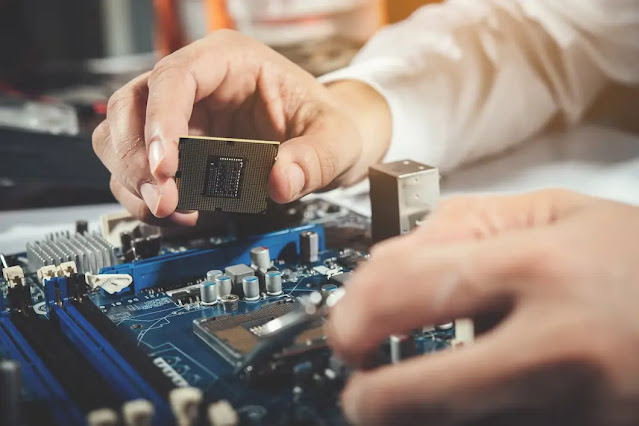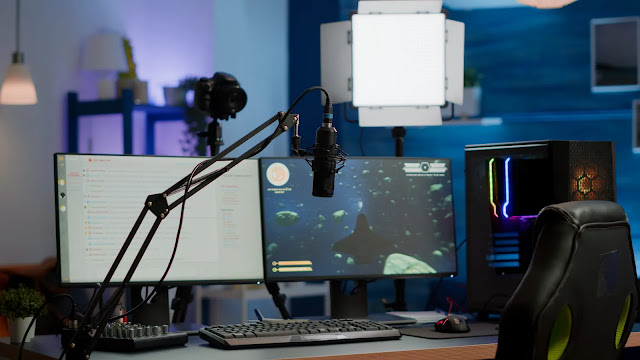5G Smartphones: Reviews and Comparison
With the emergence of 5G technology, the latest smartphones are now equipped with faster and more advanced connectivity. In this article, we will review and compare the best 5G smartphones available in 2023, and provide a guide to help you choose the right 5G smartphone for your needs.
Introduction to 5G Smartphones
What is 5G and How Does it Work?
5G technology is the fifth-generation of mobile networks and is the successor to 4G LTE. It uses high-frequency radio waves to provide faster data speeds, reduced latency, and more reliable connectivity. Unlike 4G, which was primarily designed for smartphones, 5G is built to support a variety of devices, including IoT devices, autonomous vehicles, and smart cities.
Benefits of 5G Technology in Smartphones
The introduction of 5G technology has revolutionized the way we use our smartphones. With faster speeds, we can now stream and download content at lightning speeds, play online games with lower latency, and connect to multiple devices with ease. Additionally, 5G technology opens the door to new possibilities such as augmented reality (AR), virtual reality (VR), and other immersive experiences.
Best 5G Smartphones of 2023
Samsung Galaxy S23 5G
The Samsung Galaxy S23 5G was one of the most highly anticipated smartphones of 2023. It features a 6.7-inch Dynamic AMOLED display, Qualcomm Snapdragon 900 processor, and a triple-camera setup with a 108-megapixel main sensor. The phone supports all major 5G bands and come with a long-lasting battery.
Apple iPhone 14 Pro Max 5G
The Apple iPhone 14 Pro Max 5G was another highly anticipated smartphone. It features a 6.7-inch OLED display, A18 Bionic chip, and a triple-camera setup with improved night mode capabilities. The phone will support both sub-6GHz and mmWave 5G bands.
Google Pixel 7 Pro 5G
The Google Pixel 7 Pro 5G is a high-end smartphone that comes with a 6.7-inch OLED display, Snapdragon 895 processor, and a triple-camera setup. The phone supports sub-6GHz and mmWave 5G bands and comes with a 5000mAh battery.
OnePlus 11 Pro 5G
The OnePlus 11 Pro 5G is a premium smartphone with a 6.7-inch Fluid AMOLED display, Snapdragon 895 processor, and a quad-camera setup. The phone is is able to support all major 5G bands and comes with a 4500mAh battery.
Xiaomi Mi 13 5G
The Xiaomi Mi 13 5G is a budget-friendly 5G smartphone with a 6.67-inch AMOLED display, Snapdragon 870 processor, and a triple-camera setup. The phone will be able to support sub-6GHz 5G bands and comes with a 4600mAh battery.
Comparison of 5G Smartphones
Design and Display
One of the most important factors to consider when choosing a 5G smartphone is its design and display. A good 5G smartphone should have a high-quality display that is easy to read and responsive to touch. It should also have a design that is both stylish and practical, with a durable construction that can withstand regular use.
Performance and Battery Life
Another important factor to consider when choosing a 5G smartphone is its performance and battery life. A good 5G smartphone should have a powerful processor and plenty of RAM to ensure smooth performance even when running demanding apps and games. It should also have a long-lasting battery that can keep up with heavy use without needing to be recharged too often.
Camera and Imaging
The camera and imaging capabilities of a 5G smartphone are also important to consider. A good 5G smartphone should have a high-quality camera that can take clear, detailed photos and videos in a variety of lighting conditions. It should also have features like optical image stabilization and fast autofocus that can help you capture the perfect shot every time.
Connectivity and Network
5G smartphones are designed to take advantage of the faster speeds and lower latency offered by 5G networks. When choosing a 5G smartphone, it is important to consider its connectivity and network capabilities. A good 5G smartphone should be able to connect to 5G networks and support a wide range of connectivity options like Wi-Fi, Bluetooth, and NFC.
Price and Value for Money
Finally, it is important to consider the price and value for money of a 5G smartphone. While some high-end 5G smartphones can be quite expensive, there are also more affordable options that still offer impressive performance and features. When choosing a 5G smartphone, it is important to consider its overall value for money and whether it meets your specific needs and requirements.
Factors to Consider When Buying a 5G Smartphone
In addition to the comparison factors discussed above, there are several other important factors to consider when buying a 5G smartphone. Here are some of the most important factors to keep in mind:
Network Coverage and Carrier Support
One of the most important factors to consider when buying a 5G smartphone is network coverage and carrier support. While 5G networks are becoming more widespread, they are not yet available everywhere. It is important to check the coverage in your area and ensure that your carrier supports 5G before purchasing a 5G smartphone.
Budget and Affordability
Another important factor to consider when buying a 5G smartphone is your budget and affordability. While 5G smartphones can offer impressive performance and features, they can also be quite expensive. It is important to set a budget and choose a smartphone that offers good value for money and meets your specific needs and requirements.
Brand Preference and Ecosystem
Many people have a preference for certain smartphone brands and ecosystems, such as Apple's iOS or Google's Android. When choosing a 5G smartphone, it is important to consider your brand preference and the ecosystem that you are already invested in. This can help ensure a seamless transition and a better overall user experience.
Personal Use and Requirements
One of the most important factors to consider when buying a 5G smartphone is personal use and requirements. This includes the purpose of the phone, such as gaming, photography, or work, as well as personal preferences like screen size and operating system. For those who use their phones for gaming or streaming, a large display and high refresh rate may be important. Similarly, those who prioritize photography may want a phone with a powerful camera system. It's also important to consider the operating system, as each has its own strengths and weaknesses.
Future Proofing and Upgradability
When investing in a new smartphone, it's important to consider future proofing and upgradability. This means looking at the device's hardware and software capabilities to ensure it will be relevant and functional for years to come. For example, choosing a phone with a powerful processor and plenty of RAM can ensure that it can handle future software updates and new features. It's also important to consider the phone's ability to connect to future network technologies beyond 5G. Upgradability can also be important, such as the ability to replace the battery or expand storage capacity.
Conclusion
In conclusion, 5G smartphones are becoming increasingly popular and essential for those who need fast internet speeds on the go. When choosing the right 5G smartphone, it's important to consider factors such as design and display, performance and battery life, camera and imaging, connectivity and network, price and value for money, network coverage and carrier support, budget and affordability, brand preference and ecosystem, personal use and requirements, and future proofing and upgradability. By carefully weighing these factors, consumers can find the 5G smartphone that best suits their needs and preferences.




Comments
Post a Comment